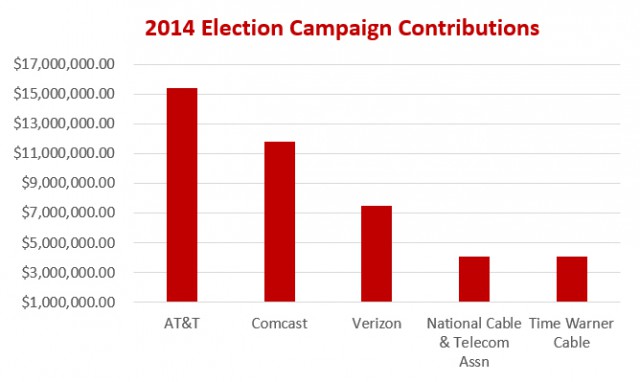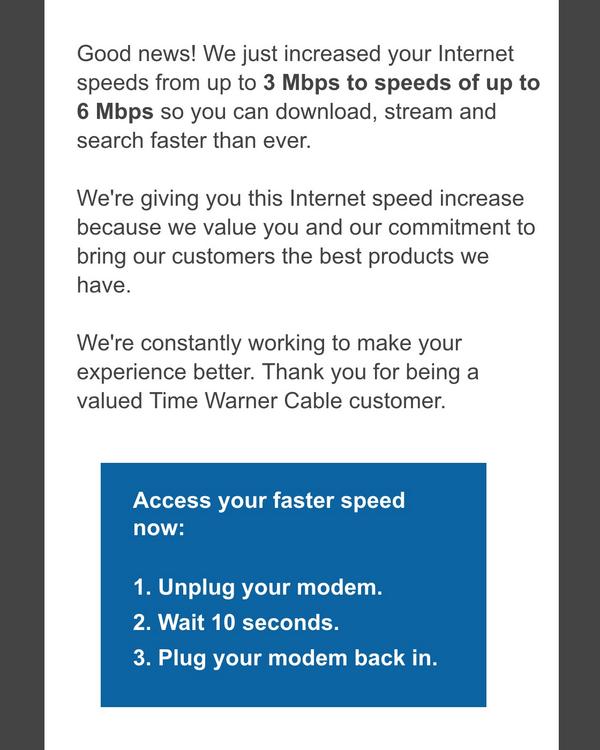 Time Warner Cable has finished the rollout of TWC Maxx upgrades in New York and Los Angeles and will likely finish in Austin by the end of this year, delivering free broadband speed upgrades up to 300Mbps and a better television experience.
Time Warner Cable has finished the rollout of TWC Maxx upgrades in New York and Los Angeles and will likely finish in Austin by the end of this year, delivering free broadband speed upgrades up to 300Mbps and a better television experience.
Unless you live in Kansas City, Dallas, San Antonio, San Diego, Hawaii, Charlotte or Raleigh, there will likely be no reinvention of broadband service for you, with top speeds still “maxing” out at just 50/5Mbps at the beginning of 2016.
 While Time Warner Cable customers have seen the company’s top premium speed stagnate at 50/5Mbps in many parts of upstate New York, South Carolina, western Ohio, and Maine for several years, TWC Maxx communities will see Standard Service speeds start at 50Mbps and rapidly increase from there. The differences in speed and price paid for broadband in Maxx markets vs. non-Maxx markets is staggering.
While Time Warner Cable customers have seen the company’s top premium speed stagnate at 50/5Mbps in many parts of upstate New York, South Carolina, western Ohio, and Maine for several years, TWC Maxx communities will see Standard Service speeds start at 50Mbps and rapidly increase from there. The differences in speed and price paid for broadband in Maxx markets vs. non-Maxx markets is staggering.
The average Time Warner Cable customer in Los Angeles will pay a promotional price of $35 a month for 50/5Mbps service. In upstate New York and other un-Maxxed areas, the price for that speed is $70 a month — twice as much.
Some customers in Los Angeles are being provided rent-free cable modems while subscribers in other cities continue to pay $6 a month.
There is speculation Time Warner Cable has set a conservative upgrade schedule for Maxx upgrades with the understanding the company will probably no longer exist long before the end of 2015, becoming a part of Comcast sometime early next year. Whether Comcast will continue the Maxx upgrade program is unknown, but it is doubtful — Time Warner’s maximum cable broadband speeds in Maxx markets are considerably faster than what Comcast offers most of its own customers.


 Subscribe
Subscribe


 AT&T is putting its gigabit fiber network upgrades on hold as long as President Barack Obama continues to insist on robust Net Neutrality for American broadband.
AT&T is putting its gigabit fiber network upgrades on hold as long as President Barack Obama continues to insist on robust Net Neutrality for American broadband.